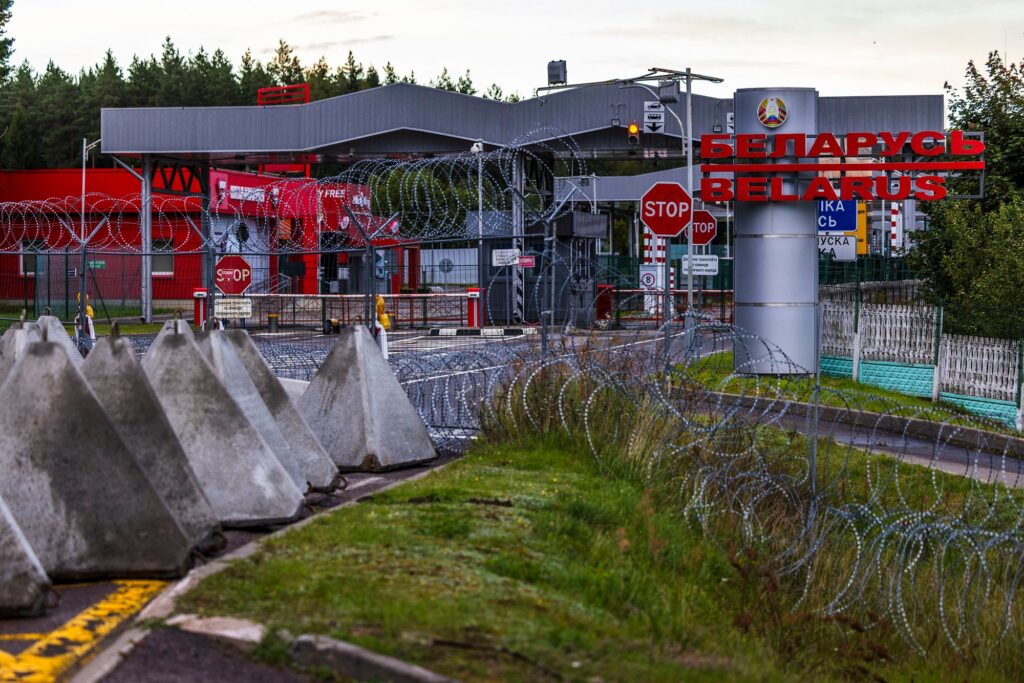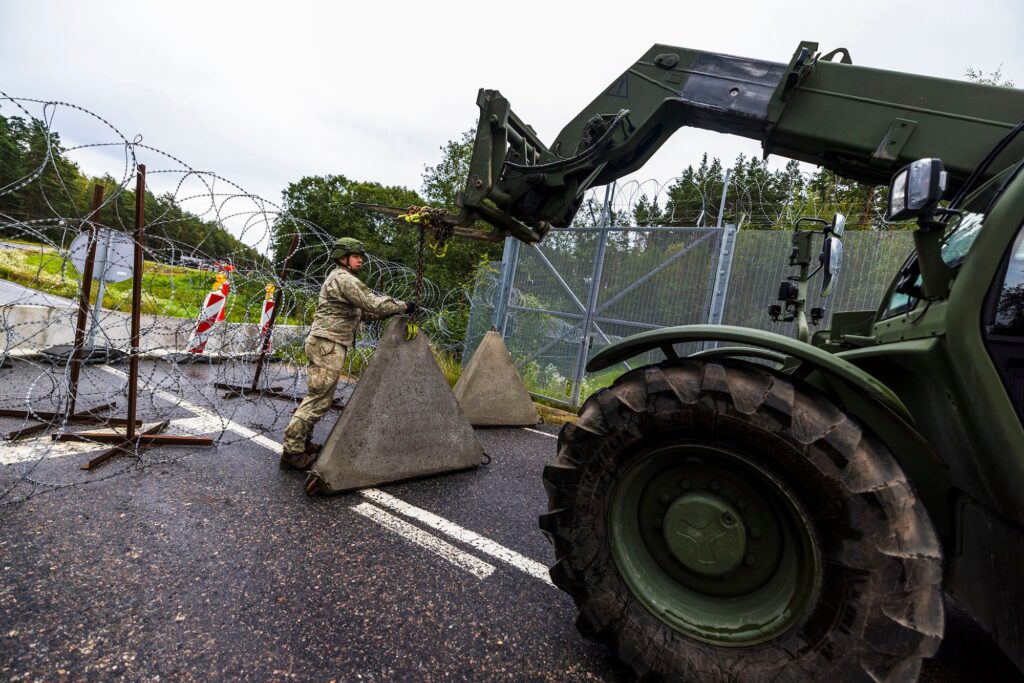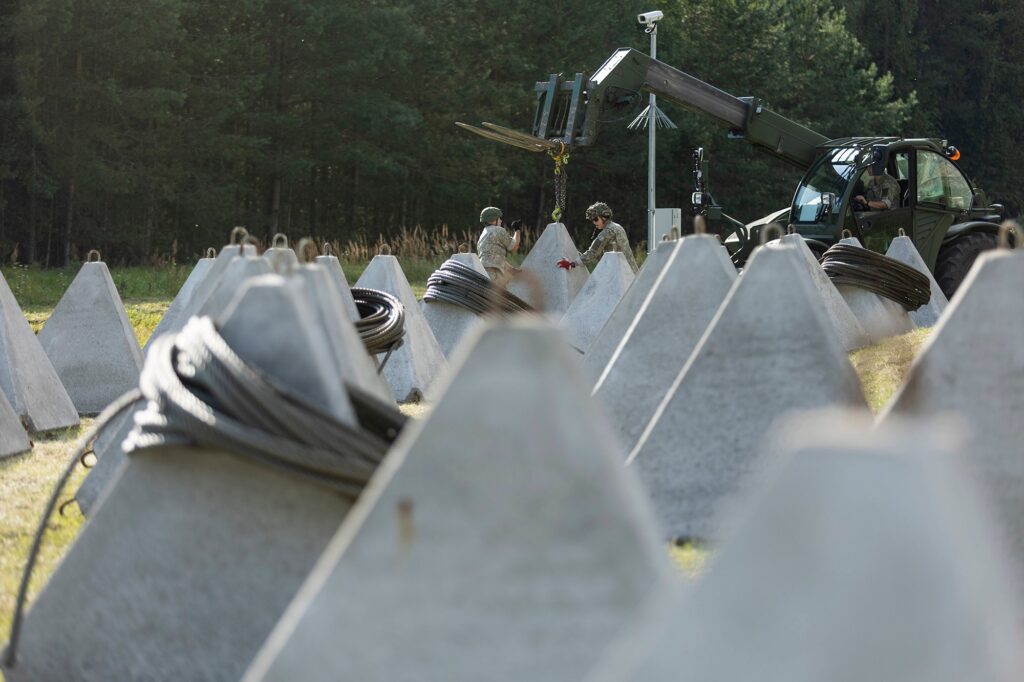Lithuanian forces install anti-tank “dragon teeth” barriers at Russian and Belarusian border crossings amid invasion threats

Lithuanian military forces have positioned concrete anti-tank obstacles known as “dragon’s teeth” at several border control points with Russia and Belarus as part of planned defensive measures.
The barriers were installed on roads at unused border crossing points, while at operational checkpoints the obstacles were placed in accessible locations nearby for rapid deployment when needed, according to Lithuanian news agency LRT, citing an announcement from the Lithuanian army.
The military stated that no modifications were made to existing road infrastructure, ensuring that current traffic conditions remain unaffected for residents.
“The installed barriers are only part of a large integrated picture,” said Lithuanian Armed Forces Commander General Raimundas Vaikšnoras. “We start from the tactical level — specific obstacles at the border — and then we will combine the entire engineering scenario into one conceptual system.”


Lithuanian military officials characterized the work as part of a scheduled implementation of counter-mobility measures designed for the planned Baltic Defense Line. This initiative represents a coordinated long-term strategy involving all Baltic states [Lithuania, Latvia, Estonia] and Poland aimed at reducing land invasion threats and limiting potential hostile actions on territory.
Lithuania’s relations with Russia in decline
Lithuania’s relations with Russia deteriorated sharply following Russia’s full-scale invasion of Ukraine in 2022. The country condemned the invasion, expelled Russian diplomats, closed the Russian consulate in Klaipėda, and imposed sanctions on Russia. Lithuania also temporarily blocked Russian cargo transit to an exclave of Kaliningrad and ceased purchasing Russian gas entirely.
Recently, Lithuania has also withdrawn from the Ottawa Convention banning anti-personnel landmines and plans to begin domestic production next year. Deputy Defense Minister Karolis Aleksa indicated the country will spend hundreds of millions of euros to produce tens of thousands of mines for defensive purposes, with plans to supply both Lithuania and Ukraine.
The country joins Finland and other Eastern European NATO members in exiting the treaty due to security concerns about Russia, which never signed the agreement. Officials stated the mines will be stored for rapid deployment if threatened rather than creating peacetime minefields.
Read also
-
Lithuanian military recovers mysterious drone 100km from Belarus border after five-day search
-
Ukraine, Poland, and Lithuania form new alliance to counter Putin’s weaponized historic narratives amid war of attrition
-
Lithuania to Belarus: Stop letting Russian war drones cross into NATO skies
-
Lithuania and Finland to start domestic landmine production for themselves and Ukraine amid Russian threat